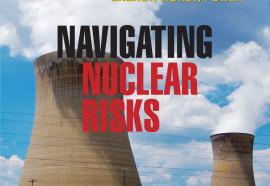Nuking the Tar Sands
Can nuclear heat allow for low-cost commercial reclamation?
Deposits of unconventional fuels—both crude oil and natural gas—occur in geological environments with very low energy. The exploitation of these low-energy deposits/reservoirs will require significant external energy to replace that lost or never provided by Mother Nature’s handiwork.










